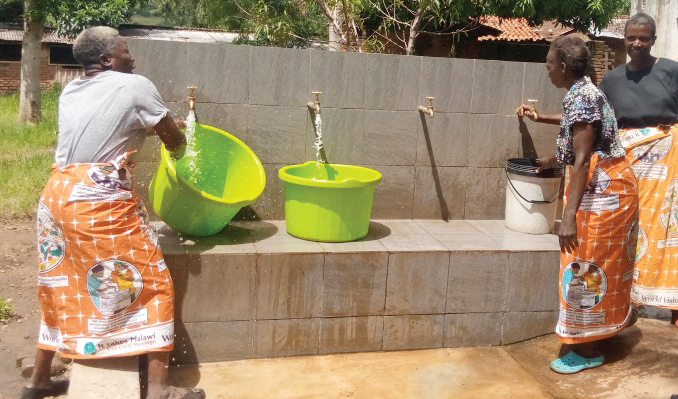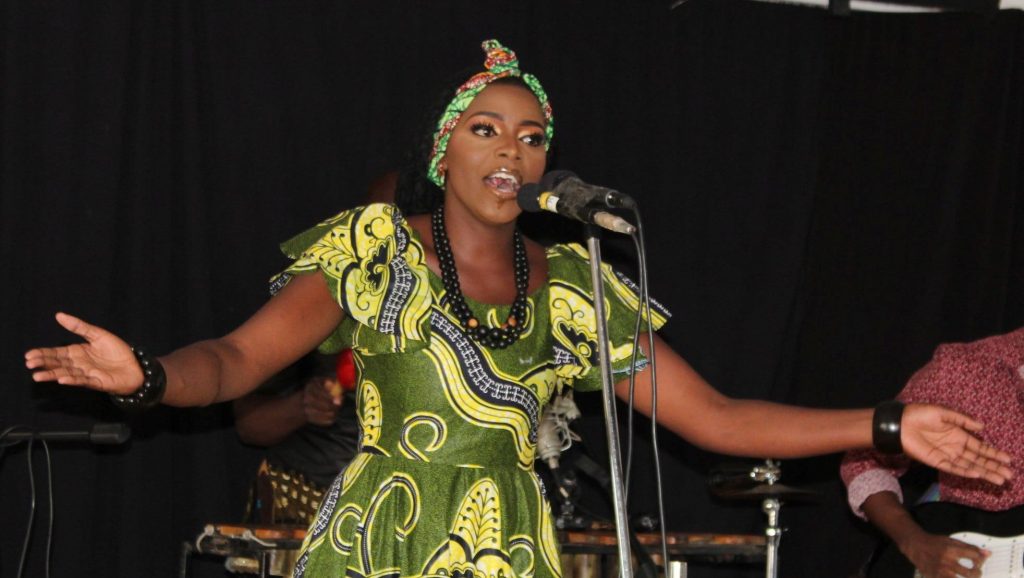Access to clean water is one of the basic human needs.
This is why there are concerted efforts by both State and non-State actors to ensure that everyone has access to safe water supply.
Such initiatives are also being implemented in line with Sustainable Development Goal (SDG) number six, which calls for ensuring universal access to safe and affordable drinking water for all.
Apart from access to clean water supply, the SDG goal also calls for good sanitation and hygiene, ending open defecation and improving water quality and water-use efficiency.
Water for People country director Ulemu Chiluzi says there is need for adequate funding to ensure expansion of safe water access in line with SDG six.
Mia tastes the water
Chiluzi says that annually, Water for People spends between K4 billion and K5 billion to implement numerous initiatives in expanding safe water supply.
He says: “As a sector, we still face some challenges and on top of it is funding. We need to have all the money we can have because the investment that we need for us to meet SDG six is huge.”
Water for People estimates that in Malawi, rural access to basic water services is at 65 percent while rural access to basic sanitation services is at 25 percent.
Chiluzi says that as part of Water for People’s efforts to close the gap, it is implementing initiatives such as drilling and repairing boreholes, rehabilitating gravity-fed piped water systems and constructing solar-powered water supply systems.
This, he says, is proving to be useful in ensuring that the functionality rate of boreholes is desirable.
Recently, Water for People also commissioned climate-resilient solar-powered mechanised water supply systems in Chiradzulu and Chikwawa districts.
These are some of the districts where Water for People implements its interventions in expanding safe water supply both in communities and in schools to ensure learners are able to access the commodity.
This also ensures that female learners do not miss classes when they are menstruating.
According to Chiluzi, such interventions remain critical in ensuring expansion of water supply to communities; hence, gradually moving to achieve SDG six.
Chiluzi’s sentiments are also shared with water programmes manager for Charity Water, Amanda Cernovich.
Charity Water is one of Water for People’s partners and is based in the United States of America.
Says Cernovich: “We are really proud of this partnership and we are encouraged to see sophisticated pipe systems that bring clean water to students, health centres and those in homes.”
Minister of Water and Sanitation Abida Mia is of the view that such interventions are playing a critical role in ensuring that everyone has access to clean and safe water supply.
“For us as government, this is what we want to see that we should have full coverage of potable water supply by 2030 in line with the SDGs,” she says.
But Mia says disruptions in the sector are proving to be a challenge which the government is working to rectiy.
She cites the recent Cyclone Freddy which made landfall on March 12 with heavy rains that triggered mudslides and floods which resulted in the loss of lives, infrastructure damage and washing away of crops.
Part of the infrastructure that was washed away includes water supply pipes for respective water boards and those installed by numerous non-State actors.
District Commissioner (DC) for Chikwawa, Nadine Kamba, says the district has largely benefited from interventions by Water for People.
Kamba says interventions by the organisation have led to expansion of safe water supply to communities and important institutions such as schools.
He says: “Water for People has been helping a lot in terms of expanding water access which has, in turn, helped avert waterborne diseases like cholera in the district.”
He says in most cases, people would travel long distances to access water which is no longer the case at present.
Similarly, Chiradzulu District Council chairperson Diverson Maolela says interventions by the organisation have been positively impacting communities.
“Community members are no longer contracting waterborne diseases because they have access to clean water supply and this is something that we cherish as a council,” he says.
According to Water for People, Chiradzulu District has 87 percent access to potable water while Chikwawa is at 90 percent. nv
The post Expanding access to safe water first appeared on The Nation Online.
 Moni Malawi
Moni Malawi 

